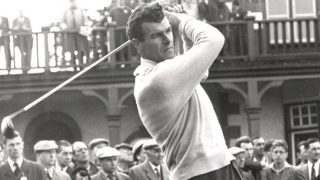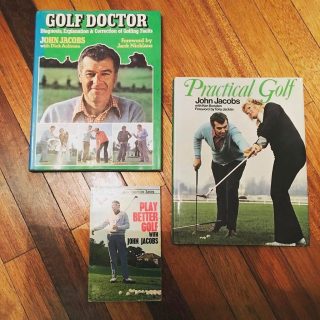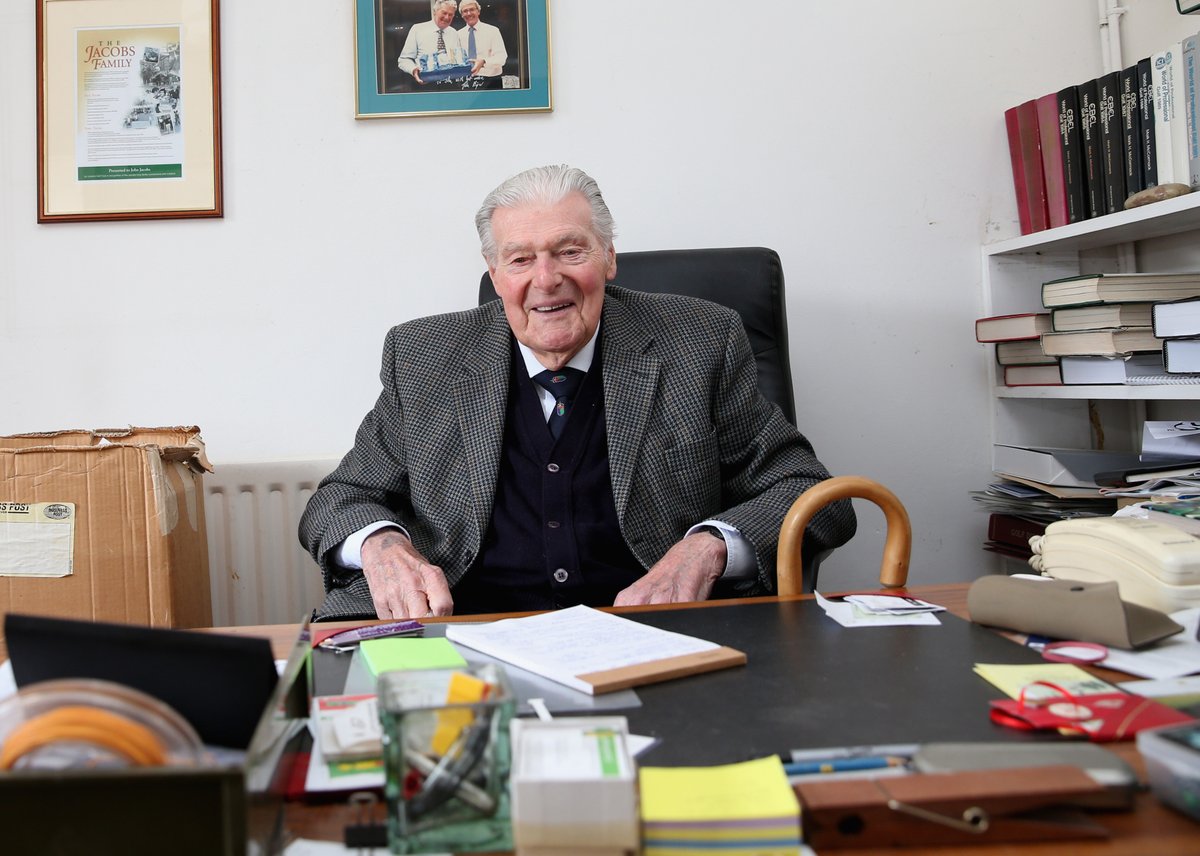Tributes have been pouring in for John Jacobs, described as the father of modern day golf, who died today (January 13) at the age of 91.
His legacy is that of a true sporting visionary – a player, a teacher, an innovator, all born out of a passion for golf that consumed his life. To this day, his influence can be felt in every aspect of the sport and across the globe. From beginners picking up a club for the very first time, to the stars of the European and US PGA tours, few golfers have not been touched by Jacobs’ genius and his overwhelming desire to ensure everyone loved the game and had as much fun playing it as he did.
A tour player of note, who competed in the 1955 Ryder Cup, Jacobs would later captain the side twice – most fittingly in 1979 when European players competed for the very first time. However, it was on the practice ground and in the game’s corridors of power where Jacobs had the biggest impact with his innovative thinking.

As a coach he transformed the fundamentals of how you teach the game, with his revolutionary philosophies based on ball flight, clubface alignment and swing path. Through coaching schools, best-selling books, videos and television series, his methods were known in the UK, across America and around the world. Everyone, from the best to the worst could understand his teaching. “Make it do-able,” he insisted. “Keep it simple.”
A PGA Master Professional, he wrote the PGA’s first training manual and decades later his principles are still at the core of every professional’s education. For more than 20 years he was also the driving force behind the development of the European Tour, fighting to expand the season of events beyond Britain. Within a matter of months of taking control he had increased events and doubled the prize money on offer. In doing so, he laid the foundations for one of the most successful organisations in sport.
Jacobs, who lived in Lyndhurst, Hampshire, was also the visionary behind the growth of driving ranges, realising their value for both professionals and students who wanted learn and improve day or night, all year round. “Golf can be an expensive sport,” he reasoned. “Golf ranges were an inexpensive way to get more people playing the game and enjoying it.”

But home for Jacobs was the practice ground – particularly his golf schools where every day there were new faces, new challenges and different people to help, improve and make happy. Jacobs was a friendly face for pros on tour, who would queue up for his advice, and, thanks to his books, videos, clinics and television appearances, he was a household name on both sides of the Atlantic.
All of which is a long way from his early years growing up at Lindrick Golf Club in Yorkshire, where his father was the professional and understanding the swing was simply to “stop myself hooking into the gorse on the left”.
From everyday people to princes and kings, from beginners to tour players, Jacobs taught everyone. He touched lives, changed golf, innovated teaching, made the European Tour thrive – but most importantly he ensured people of all ages and all abilities enjoyed swinging a club.
PGA Chief Executive Sandy Jones paid this tribute: “John Jacobs will be fondly remembered by those of us who were privileged to know him. Quite simply he was a legend of the game and his name will sit at the top table with all the golfing greats.”
Dr Kyle Phillpots, The PGA’s Executive Director of Education and Global Development, added: “John’s legacy to golf is well documented. In addition to his accomplishments as a player, coach and administrator, he is the person who made the European Tour happen and he is widely acknowledged as the father of modern golf coaching.
“When I started at The PGA, although not a golfer, I had certainly heard of John Jacobs and he lived up to his reputation in terms of not only his knowledge and huge understanding of the golf swing, but also his strength of character. However, more than that he was a real gentleman. He was very kind to me and was always a great source of support to me and the training academy.
“The other thing that stands out is his love of life – he took pleasure from so many things, whether it was golf, playing it, coaching it or talking about it. He enjoyed fishing and also the simple pleasures of eating and drinking fine wine, and just being with people. I will miss him and his great stories about his amazing life in golf.”



